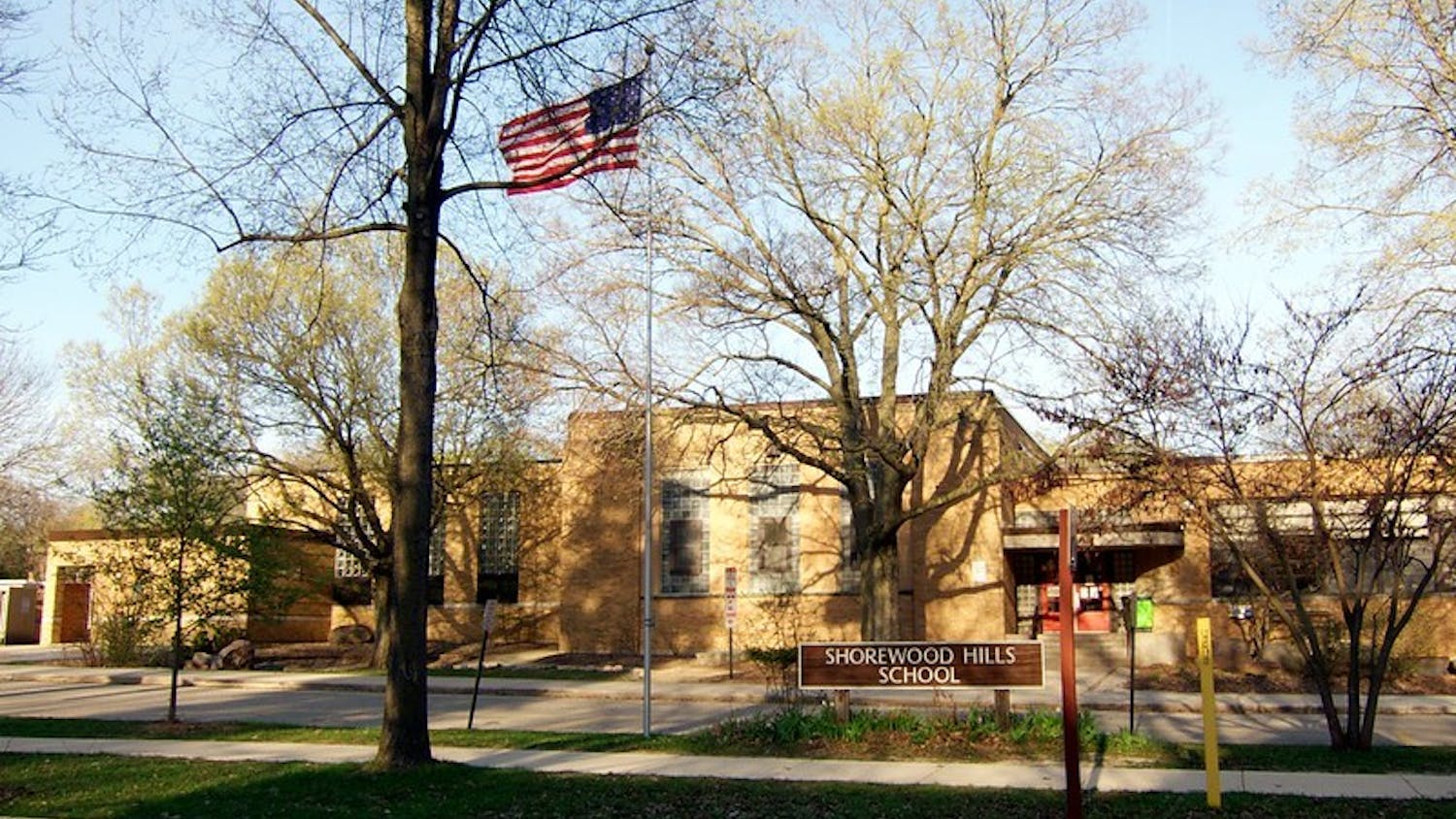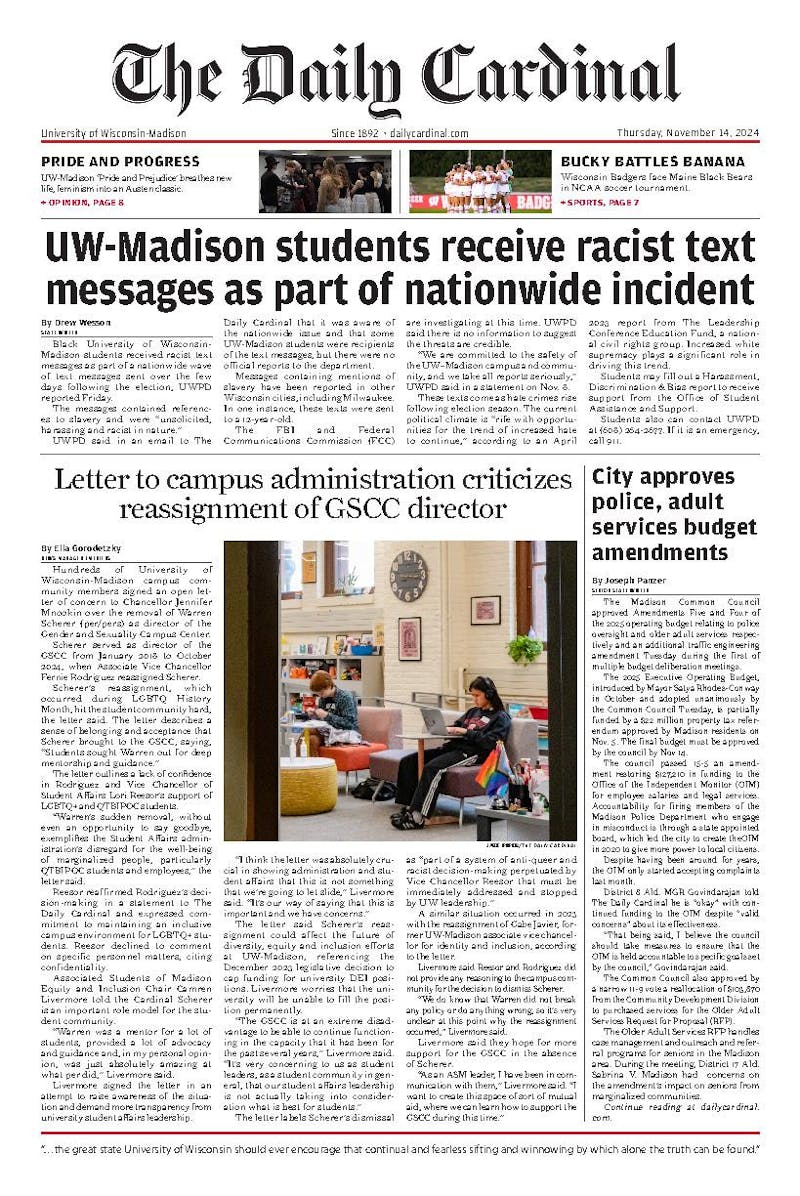Members of the Associated Students of Madison (ASM) Sustainability Committee and Office of Sustainability attended the University of Wisconsin System Sustainability Annual Meeting earlier this month.
The meeting, hosted from Oct. 12-13 at UW-La Crosse, consisted of presentations by sustainability staff, students and organizations as well as working groups where students could connect on issues they are most passionate about.
Christina Treacy, ASM sustainability chair, and co-coordinators Anna Silverman and Hannah Stahmann shared their experience in an interview with The Daily Cardinal.
What new policies did you learn about?
SILVERMAN: Representatives from a company called Trane talked to us about the different ways that they are incorporating energy efficiency and renewables into operations on campuses. They talked about bringing people from the left and the right together because the people on the right want money and the people on the left care about their kids.
TREACY: There is a requirement to incorporate sustainability standards into new buildings. [UW System facility coordinators] have compiled a list of guidelines to be followed when implementing that policy on a broad scale.
SILVERMAN: Within power purchase agreements, universities collectively can contract with another company like Madison Gas & Electric to build a solar farm or to build a wind farm or any kind of renewable source of energy that is off campus. They will be a part of the electricity grid without putting it on their campus directly.
What new UW projects did you learn more about?
STAHMANN: There's an agrivoltaics project happening at the Kegonsa research center. Agrivoltaics is a solar field working in with already existing agriculture, so you can use the land for growing food and producing energy at the same time.
SILVERMAN: One of our current projects is the Two Creek solar project that we do in conjunction with Madison Gas & Electric, which is a 150-megawatt solar energy facility located in Manitowoc County.
What were the most valuable interactions to you?
TREACY: The working groups are very valuable for finding actions and establishing actions that the [UW] System could take, but also finding things that other schools are doing or that the system is doing that we could work on, more specifically within campaigns in our committee.
What did UW-Madison put forth into the conference?
TREACY: Maya Barwick presented about the sustainability goals and actions report from the Social Sustainability Coalition, and then Malia Nguyen presented on the food insecurity and food sustainability. Evie Sellers also presented on CLEAN [a student coalition pushing for 100% clean energy usage at UW-Madison].
There was also a presentation on our solar project happening at the Kegonsa Research Center by Josh Arnold [the Office of Sustainability Campus Energy Advisor].
What new projects are you most excited about?
SILVERMAN: Everyone's really passionate about sustainability education: a Canvas course [and] a gen-ed requirement. UW-Green Bay has a gen-ed requirement. UW-Stout has a Canvas course but also one for staff, which is another thing we could look at. Everyone was very interested in the same things. There were a lot of fruitful conversations that happened around the working groups.
TREACY: We talked to Hayden Hendersen, one of the system sustainability coordinators, about data collection. She went into a lot of detail about the work that she is doing to collect data: sustainability data, energy use data. She's hoping to get food waste data in the future.
What will have the most system wide impact moving forward?
TREACY: We talked to students about potentially passing legislation on a systemwide scale, so we are planning on coordinating with those students to pass legislation on a wider scale and show the system that students care about [sustainability].
With the state cutting budgets, sustainability is oftentimes one of the first [fields] to go because it's not seen as necessary, so [legislation] would definitely send a message to the system. Just mobilizing all of the students behind a piece of legislation, I think, is really powerful for uniting our universities.
Is there anything you wish was different at the conference?
TREACY: I think there weren't as many students as I anticipated, but what really made the conference successful was because students were there. That’s why we want to do a student sustainability conference because we were so much more productive when we were having conversations with students.
SILVERMAN: There was a lot of energy which is a bit farther fetched than what we do, which was kind of like, “Oh this is so cool,” but there were no actual discussions that give students a way to get involved.
TREACY: A lot of the sustainability initiatives at the system level are operations oriented because sustainability in the UW System framework falls under the Office of Capital Planning & Budget.
There's only so much you can do at the facilities level. At the end of the day, the things that we are working on as students and things that we can impact as students are more of the small-scale campaigns.
What did this conference teach you?
There's something to be said for the power that students have in advocating for goals. The [former] Chancellor of UW-La Crosse, [Joe Gow], came to talk to us, and he said there wasn't a sustainability position until a kid advocated for it and got it. There's something to be said for the students pressuring the administration to create these positions, create these opportunities and work towards these goals.
Mary Bosch is the photo editor for The Daily Cardinal and a first year journalism student. She has covered multiple stories about university sustainability efforts, and has written for state and city news. Follow her on twitter: @Mary_Bosch6






